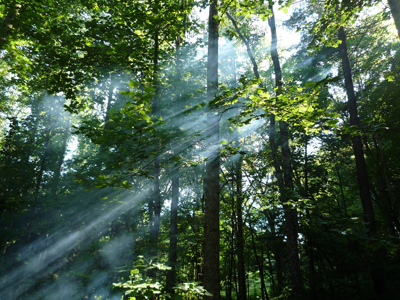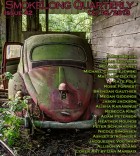My original note about your story was: “Every time I read ‘The Summer of Pinbugs,’ I had to smile. I love the tone, the language, and the subject matter. It’s clever and yet carries a message that is relevant to life both on small and grand scales.” With that in mind, how did this original piece occur to you?
I wrote a version of the story three years ago. Originally, it was set in a specific city (New York) and told from the point of view of one young woman. Though my impulse was to use a more removed authorial voice, I struggled to fit the story into a “character driven” mold, which I thought, at the time, was the only acceptable one. Later, I completely rewrote the story in its present form. Now that I think about it, “Pinbugs” was probably inspired by Camus’ novel The Plague, which I read and loved as a teenager. I was intrigued by the idea of a city struggling against a mysterious, uncontainable, invisible invader, be it plague or pinbug. I wanted to write about a city cut off from the rest of the world, the increasingly absurd new reality it functions within, and the collective mythology that coalesces around the ordeal.
Often when writers attempt a story with a concept like this, they don’t take it far enough. You’ve taken this story from annoyance through acceptance to nostalgia and ultimately, toward an even worse fate. How did you know how to end this? When to end it? Can you talk about endings in general?
It’s tricky with endings. There’s that saying about how an ending should be unexpected, yet inevitable. When in doubt, I just keep writing a scene or two past what I thought might have been the end, then go back and lop some stuff off. In early drafts, I’ll sometimes have a last line at the end that is too “telling,” that kind of imposes a certain interpretation onto the story or spells out something when it would be better to trust the reader, take the line out, and end on a more enigmatic note. In this case, the death of the pinbugs seemed like a natural end, with some falling action after it about the carnivorous roaches. I liked the image of the children clutching their stuffed animals and waiting, in dread, for the roaches to come out, because it’s creepy and menacing and provides a glimpse of the city’s new post-pinbug reality. It also hints at how the mythology of the pinbugs will be perpetuated by future generations who will not even remember the era before the pinbugs.
Is this the kind of story you usually write? If so, what appeals to you about warping reality to show a truth? If not, where else has your writing taken you?
I think I write two main types of stories. The first is more serious and traditional and typically involves protagonists who resemble me. The other is this type of story, in which I start with a weird premise and try to push it as far as I can. Even for more “serious” stories, though, I like the idea of creating a world that is recognizable, but slightly off-kilter. I think that’s why I love Flannery O’Connor’s stories so much; they are stark and realistic, yet skewed in a subtly grotesque way.
Flannery O’Connor’s influence is ubiquitous. Since you mention influences, what other authors have made an impact on you, how and why?
Alice Munro has been a huge influence for me, as she is for many writers of short fiction. Her stories are masterpieces. I’ll finish reading a Munro story and think, there isn’t anything she could have added to improve on this. She creates such a complete world within each story. I particularly admire how she can move back and forth through time and points of view and yet never disorient the reader.
Recently I’ve been reading stories by Bonnie Jo Campbell, Grace Paley, Mary Gaitskill, and Susan Steinberg. I tend to read fiction that exhibits a certain dark humor. I just read a story in Tin House called “Turtleface” by Arthur Bradford that has really stuck with me. It’s hilarious and visceral and heartbreaking, the kind of story I ideally want to write.
What are you working on now, a novel, a collection, maybe a screenplay?
I’m working on several short stories right now. I did a writing residency at the Virginia Center for the Creative Arts in August, and while I was there, I started four longer-form stories that I’m continuing to develop. I have a habit of switching back and forth between projects and being lured by the promise of starting something completely new, which can be a bad thing if it prevents me from slogging through difficult revisions. I’m also working on a first draft of a novel. I’m at the stage of kind of throwing stuff at the wall and seeing what sticks. I keep coming back to flash fiction, though. There’s something about the short form, the limited word-count, that lowers the stakes and allows me to delve into weird pockets of my imagination.



 The core workshop of SmokeLong Fitness is all in writing, so you can take part from anywhere at anytime. We are excited about creating a supportive, consistent and structured environment for flash writers to work on their craft in a community. We are thrilled and proud to say that our workshop participants have won, placed, or been listed in every major flash competition. Community works.
The core workshop of SmokeLong Fitness is all in writing, so you can take part from anywhere at anytime. We are excited about creating a supportive, consistent and structured environment for flash writers to work on their craft in a community. We are thrilled and proud to say that our workshop participants have won, placed, or been listed in every major flash competition. Community works.